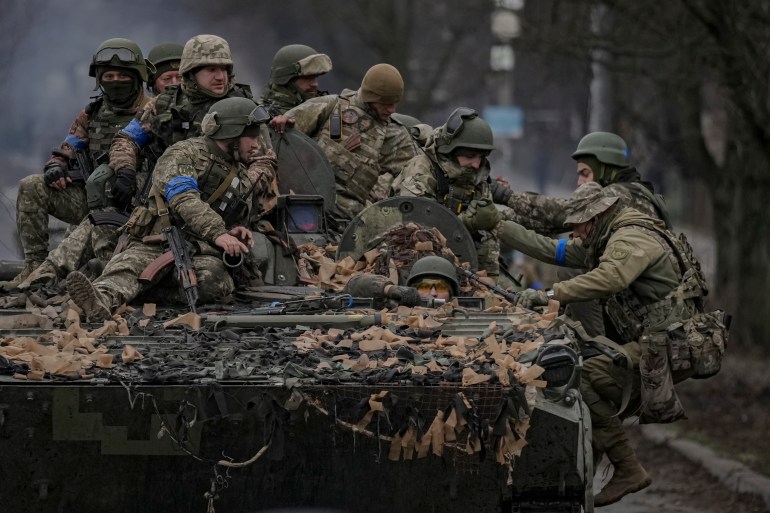
The Russian military aggression against Ukraine launched almost two months ago has clearly signaled a change in the traditional world order and triggered the unprecedented reaction of the Western coalition led by the U.S. The ongoing conflict between Russia and Ukraine has left the global energy market uncertain, threatening to cause severe energy shortages and oil prices exceeding $110 per barrel.
Since the Russian intervention in Ukraine kicked off, numerous sanction packages have been imposed on Russia, hitting mostly financial institutes and state-owned companies. This resulted in Western countries’ consolidation, and the collective refusal of Russia-related transactions and import of Russian natural gas, oil, and coal.
Whereas the U.S. and UK-led Western coalition gathered to support Ukraine politically, economically, and military/technically, some EU countries are at loggerheads over demands for an immediate blockade on Russian oil imports, joining the international financial sanctions, and condemning Moscow’s actions locally.
For example, Hungary and Germany seemed hesitant to ban Russian oil and gas imports, citing that “measures targeting Russia’s lucrative oil and gas exports were a red line.” However, under harsh criticism and pressure by the U.S., Germany suspended Russia’s Nord Stream 2 project and released $3.2 billion to acquire floating liquefied natural gas import terminals in order to move away from dependence on Russian gas. Unlike their Western partners, the Baltic states and Poland took a more rigid stance, joined the anti-Russian front, and declared that they fully stopped importing Russian gas and coal.
In addition to Europe, the Gulf countries and the post-Soviet region, and China and India are determined to keep their criticism at a low level and simultaneously not cross red lines in their relations with Russia. During the UN Security Council vote condemning the Russian invasion of Ukraine, one of the United States’ most important partners in the Gulf, the United Arab Emirates (UAE), ignored Washington’s pleas and abstained from condemning the invasion. Meanwhile, Saudi Arabia shied away from backing the Biden administration and severing relations with Russia.
Obviously, the U.S. seeks to isolate Russia more by pushing the EU and other states to ban all Russian imports and rely on alternative energy suppliers, that is the Gulf monarchies. However, they were shocked when OPEC+ countries, including the UAE, Saudi Arabia, and Qatar, after a 13-minute-long meeting, refused to increase their production and decided to stick to a deal previously agreed upon between member states. This is mainly because the Gulf states do not want to jeopardize relations with Russia over Ukraine, as they see Moscow as an essential linchpin for the oil-producing coalition.
Moreover, just weeks before the war in Ukraine commenced, Russia and China inked a new $80 billion natural gas agreement to supply Russian gas to China via the Far Eastern route for the next 25 years, boosting Russian gas volumes to China by an extra 10 billion cubic meters (bcm) a year. Despite harsh criticism by the West, Beijing officially stated that it would not join international sanctions against Russia, referring to the bilateral strategic partnership, though emphasizing that “Beijing is extremely concerned about the harm to civilians in Ukraine” and calling for de-escalation.
In addition to China, India also refused to join anti-Russian sanctions formally and is set to increase the import of Russian oil with deep discounts as its economy struggles to recover from the COVID19 pandemic. Reportedly, New Delhi has already imported three million barrels of crude oil and is now setting sights on Russian coal. As such, India’s coal imports from Russia jumped in March to highs not seen in more than two years. Coal imports from Russia were at 1.04 million tons, the highest level since January 2020.
In Central Asia, Russia’s immediate neighborhood, Turkmenistan, Kyrgyzstan, and Tajikistan preferred not to speak about or react to the war in Ukraine. Kazakhstan endeavors to balance delicately between Kyiv and Moscow while gradually taking measures to distance itself economically from Russia.
s the second-biggest oil exporters after Russia, Kazakh oil producers are using the Caspian Pipeline Consortium (CPC) pipeline to send their barrels to the Black Sea, and Russia’s Transneft for exports via the Baltic Sea and the Black Sea. They are now seeking to reroute their flows away from the traditional private pipeline running to the Black Sea due to Russia’s economic isolation and the initial sharp fall of the Russian ruble.
On the other side of the post-Soviet region, the South Caucasus states also abstain from vocal criticism of the war in Ukraine and have joined energy sanctions against Russia. While Georgia and Armenia made it clear that they do not have plans to join energy and economic sanctions, energy-rich Azerbaijan held several talks with the EU as an alternative energy supplier for a possible increase in exports to Europe soon.
As a regional state with options for political maneuvering and economic tools, Russia signed a new document on allied cooperation with Azerbaijan days before the intervention in Ukraine, thus seeking to neutralize it beforehand. Nevertheless, the document did not prevent Azerbaijan from dispatching three humanitarian aid convoys worth around 12 million euros and instructing the national oil company (SOCAR) to provide free fuel to Ukrainian fire engines and ambulances.
It is evident that the current anti-Russia sanctions will hit Russia’s already stagnating economy hard and will result in a gradual decrease in the energy monopoly in Europe. On a political level, more countries will likely join the anti-Russia group by banning Russian goods and fossil fuels, steadily shifting to green energy and renewable sources. In light of the Ukraine invasion, EU member states are already seeking to accelerate the transition to renewables to meet their electricity and energy needs fully.
The original article was published by Politics Today
